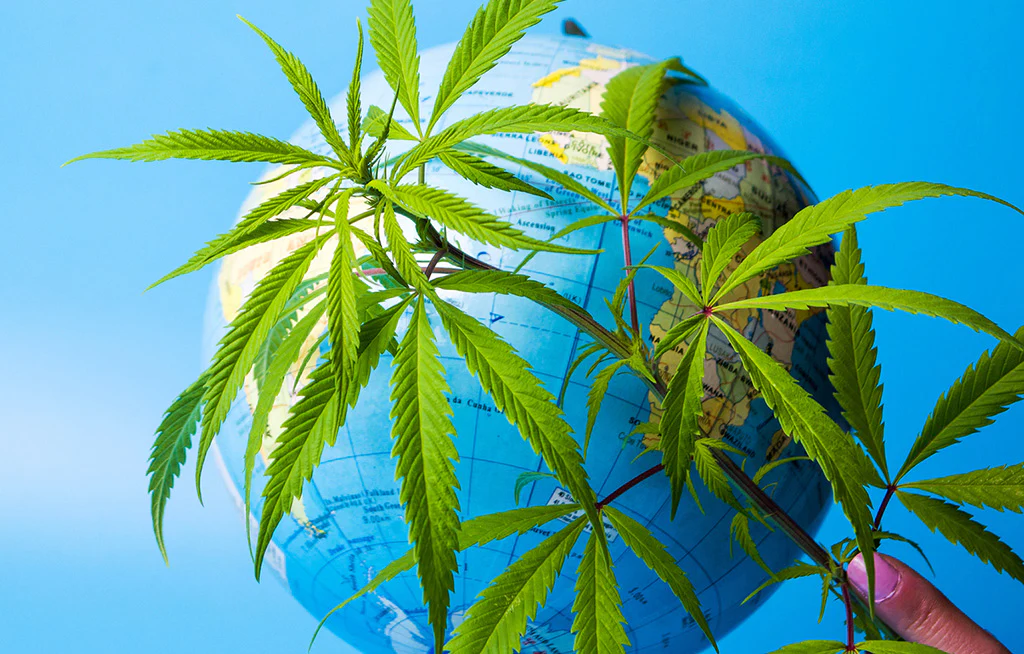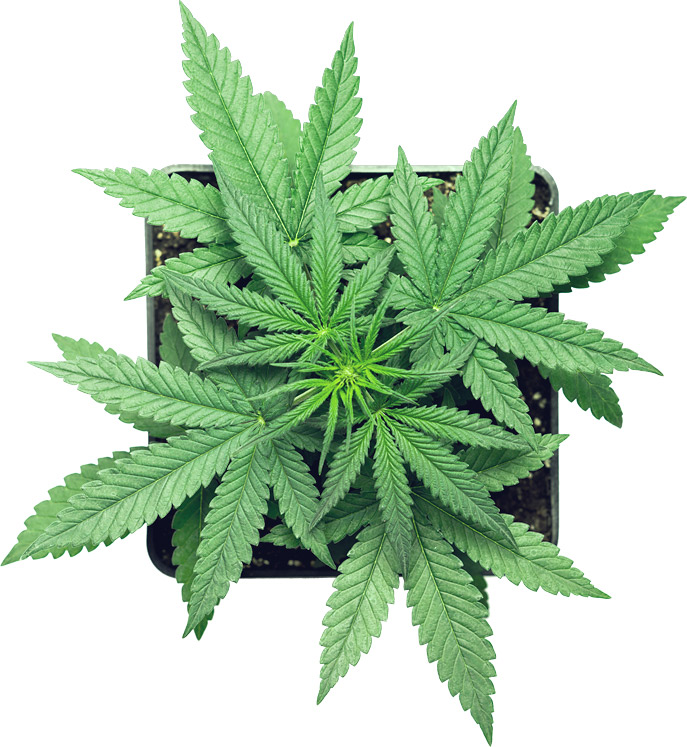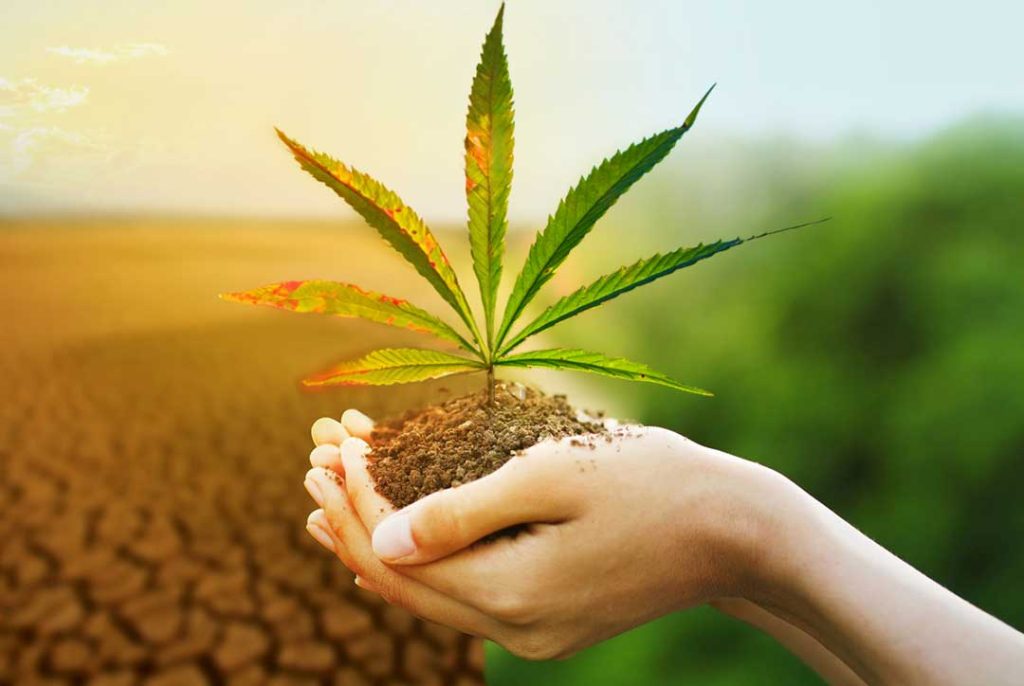Sustainability
Learn how hemp cultivation promotes environmental sustainability through carbon sequestration, soil regeneration, and reduced reliance on harmful chemicals.
Find out moreDive into the multifaceted relationship between hemp cultivation and climate change mitigation. Explore how hemp’s natural properties, including its fast growth rate, carbon sequestration capabilities, and versatile applications, position it as a powerful tool in the fight against environmental degradation. Learn how harnessing hemp can contribute to restoring ecosystems, reducing greenhouse gas emissions, and promoting sustainability across industries.

Learn how hemp cultivation promotes environmental sustainability through carbon sequestration, soil regeneration, and reduced reliance on harmful chemicals.
Find out moreLearn about the health benefits of hemp-derived products, including CBD, nutritious hemp seeds, and eco-friendly hemp textiles, supporting holistic well-being and sustainable living.
Find out moreDiscover how hemp cultivation fosters economic prosperity by creating jobs, revitalizing rural economies, and offering sustainable alternatives to traditional industries.
Find out more


Explore the diverse components of the hemp plant used for medicinal purposes, focusing on symptom relief rather than recreational effects.
Learn about the different ways medical hemp can be consumed, including oils, tinctures, capsules, edibles, and topical applications, tailored to individual needs and preferences.
Explore the latest scientific research and evidence supporting the efficacy of medical hemp in treating various health conditions, empowering informed decision-making and treatment choices.
Discover the therapeutic benefits of medical hemp in alleviating a wide range of health issues, from chronic pain and inflammation to anxiety and seizures.
Navigate the legal landscape surrounding medical hemp usage, including regulations, access, and patient rights, ensuring safe and compliant access to therapeutic relief.
Hear firsthand accounts and testimonials from individuals who have experienced the benefits of medical hemp, offering insights into its effectiveness and impact on their quality of life.


Discover the myriad ways in which hemp cultivation offers a sustainable alternative to traditional practices. From reducing carbon emissions and conserving water resources to preventing soil erosion and promoting biodiversity, hemp’s environmental benefits are vast and far-reaching. Explore how integrating hemp into agricultural and industrial processes can lead to greener, more eco-friendly outcomes, driving positive change for our planet and future generations.
Biofuels: A Sustainable Alternative to Fossil Fuels One of the most promising applications of hemp in the renewable energy sector is in the production of biofuels. Hemp-derived biofuels offer a sustainable alternative to fossil fuels, reducing dependence on finite resources and mitigating greenhouse gas emissions. Through processes like pyrolysis and transesterification, hemp biomass can be converted into biofuels such as biodiesel and bioethanol, which can power vehicles, generators, and other machinery.
Biomass Energy: Harnessing Nature’s Power Hemp biomass, consisting of the plant’s stalks, leaves, and other organic matter, can be utilized to generate biomass energy. Through processes like combustion and gasification, hemp biomass can produce heat, electricity, and even biogas. Biomass energy derived from hemp offers a renewable and carbon-neutral source of power, making it an attractive option for reducing reliance on fossil fuels and decreasing carbon emissions.
Biogas Production: Turning Waste into Energy Another innovative application of hemp in the renewable energy sector is in biogas production. Hemp biomass, along with other organic materials, can be processed in anaerobic digesters to produce biogas, a mixture of methane and carbon dioxide. Biogas can be used as a clean and renewable fuel for heating, cooking, and electricity generation. By utilizing hemp biomass to produce biogas, communities can reduce organic waste, mitigate methane emissions, and generate sustainable energy.
Diversifying Energy Sources for a Sustainable Future The integration of hemp into the renewable energy sector offers a means of diversifying energy sources and enhancing energy security. By leveraging hemp’s ability to thrive in diverse climates and conditions, communities can cultivate a resilient and decentralized energy infrastructure. Hemp cultivation for energy production can also provide economic opportunities for farmers, fostering rural development and revitalizing agricultural communities.
Mitigating Climate Change Through Sustainable Practices As the world grapples with the urgent need to address climate change, hemp presents a compelling solution through its sustainable energy applications. By replacing fossil fuels with hemp-derived biofuels and biomass energy, societies can significantly reduce carbon emissions and mitigate the impacts of global warming. Hemp cultivation also offers environmental benefits such as soil regeneration, carbon sequestration, and biodiversity conservation, further contributing to climate resilience and ecosystem health.
Building a Sustainable Future with Hemp In conclusion, hemp holds immense potential to drive a green energy revolution and pave the way towards a more sustainable future. From biofuels and biomass to biogas and beyond, hemp offers versatile solutions for sustainable energy production and resource management. By harnessing the power of hemp, we can diversify energy sources, enhance energy security, and mitigate the impacts of climate change, creating a brighter and greener tomorrow for generations to come.
Explore hemp’s significant contributions to the renewable energy sector and its potential to drive a green energy revolution. From biofuels and biomass to biogas and beyond, hemp offers versatile solutions for sustainable energy production and resource management. Learn how hemp-derived fuels and feedstocks can replace fossil fuels, reduce carbon emissions, and mitigate the impacts of climate change. Discover the role of hemp in diversifying energy sources, enhancing energy security, and building a more resilient, sustainable future for generations to come.

Explore how incorporating hemp into urban development projects can promote green infrastructure, improve air quality, and mitigate the urban heat island effect. From rooftop gardens and vertical farms to eco-friendly building materials, discover innovative ways to integrate hemp into city planning and create healthier, more resilient urban landscapes for future generations.




Nulla facilisi. Nullam in magna id dolor blandit rutrum eget vulputate augue sed eu leo eget risus imperdiet.

Donec metus lorem, vulputate at sapien sit amet, auctor iaculis lorem. In vel hendrerit nisi. Vestibulum eget risus velit.


Donec metus lorem, vulputate at sapien sit amet, auctor iaculis lorem. In vel hendrerit nisi. Vestibulum eget risus velit.


Donec metus lorem, vulputate at sapien sit amet, auctor iaculis lorem. In vel hendrerit nisi. Vestibulum eget risus velit.


In vel varius turpis, non dictum sem. Aenean in efficitur ipsum, in egestas ipsum. Mauris in mi ac tellus.



